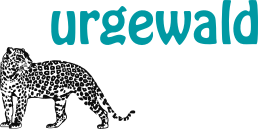Washington D.C., Berlin, October 12, 2021
During the World Bank’s Annual Meetings (October 11-17), environmental organization Urgewald has released a new case study that shows: Despite the World Bank’s pledge in 2013 to no longer finance coal power plants, the Bank still provides public assistance to coal in many other ways. As such, in Pakistan, the World Bank is assisting the development of the Thar coal field, which is the largest coal field in Asia [1] totaling over 175 billion tonnes of lignite coal, and over 7,000 megawatts of coal-fired generation.
Ahead of the COP26 climate summit, the World Bank is boasting to “already [be] the largest multilateral funder of climate investments in developing countries.” [2] However, the World Bank neglects to disclose that it is at the same time also the largest multilateral funder of fossil fuels in developing countries – providing over $12 billion since the Paris Climate Agreement. [3]
The World Bank’s pledge from 2013 only applies to direct project finance of coal power plants, and not all the other ways the World Bank provides public assistance to fossil fuels, such as: finance for fossil fuel-enabling infrastructure; government budget support funneled into fossil fuel investments; policy reforms that make fossil fuel investments more profitable (e.g., tax breaks); on-lending through intermediary banks and equity funds; and technical assistance to provide geophysical data, marketing, and policy advice.
The Urgewald study lays out meticulously how World Bank assistance tied Pakistan to a coal-intensive development path:
- World Bank technical assistance provided the road map for attracting investment into Pakistan’s undeveloped Thar lignite coal field. After 2013, the World Bank assisted Pakistan to follow the coal road map, without labeling it as coal.
- World Bank advice and required policy reforms on electricity tariffs made new coal power investments in Pakistan the most profitable in the world. [4]
- World Bank financed transmission lines for new coal power plants; gave budget support contributing to government coal investments; and provided equity to two local banks financing five Thar coal-to-power projects.
- Locked-in commitments for coal power purchase – enabled by World Bank policy reforms – are causing financial distress and barriers to expanding renewable energy in Pakistan.
Following the World Bank’s coal road map, Pakistan went from having only one small 150 MW coal-fired power plant in 2016 to five coal plants equal to 4,770 MW in 2020 with another 3,330 MW of coal power due to come on-line between 2022 and 2023. After years of electricity shortages, now Pakistan has too much power. The surplus power means power plants have low utilization rates coupled with high capacity payments – a tariff reform the country had implemented to receive budget support from the World Bank. As a result, Pakistan’s circular debt has swelled and threatens the country’s financial wellbeing.
Pakistan is not an isolated case
According to Urgewald data collection, since the Paris Climate Agreement, the World Bank has provided over $12 billion in direct fossil fuel finance in over 35 countries; policy reforms in dozens of countries making fossil fuel investments, including coal, more profitable; $10-$20 billion annually in government budget support without any restrictions on fossil fuel expenditures (to 81 countries since Paris Agreement), and technical assistance in at least 11 countries aimed at expanding fossil fuel investments, including coal.
Heike Mainhardt, senior advisor at Urgewald and author of the Pakistan case study, points out: “It is a win-win business model for the World Bank. The Bank lends billions for fossil fuel investments that cause the climate crisis and the Bank also lends billions in “climate finance” to address the crisis. It is time the World Bank stops the climate charade and stops providing public assistance to boost fossil fuel investments.”
During the World Bank Annual Meetings, the World Bank is suggesting a capital increase in order to lend more “climate finance”. [5] While more climate finance for developing countries is certainly welcome, the donor governments (e.g., US, Germany, UK, etc.) should demand that the World Bank first stop contributing billions to the climate crisis and redirect the fossil fuel billions into climate finance.
The World Bank’s alignment with Paris Climate Goals must involve an end to all public assistance for all fossil fuels, including through: direct finance, policy-based lending, budget support, technical assistance and on-lending through financial intermediaries.
Mainhardt asserts: “The World Bank is making countries more dependent on fossil fuels not less. Governments should think twice before giving the World Bank another capital increase. If the World Bank cannot end its public assistance to fossil fuels, then perhaps donor governments should look for a different bank to provide climate finance to countries.”
The Pakistan case study is available for download here.
Notes:
[1] https://www.worldcoal.com/coal/17032020/shanghai-electric-achieves-fina…
[2] https://www.worldbank.org/en/topic/climatechange/brief/3-things-you-nee…
[3] https://urgewald.org/en/medien/world-bank-annual-meeting-bank-invested-…
[4] Statement is based on the highest rate of return on investment. See: https://www.dawn.com/news/1107585 ; and https://www.dawn.com/news/1445060
[5] See paragraph 32 of World Bank Group, 2021. “WBG Financing for Green, Resilient and Inclusive Development – Towards A Post Pandemic Approach.” World Bank Group, October 15, 2021 Development Committee Meeting. https://www.devcommittee.org/documents

